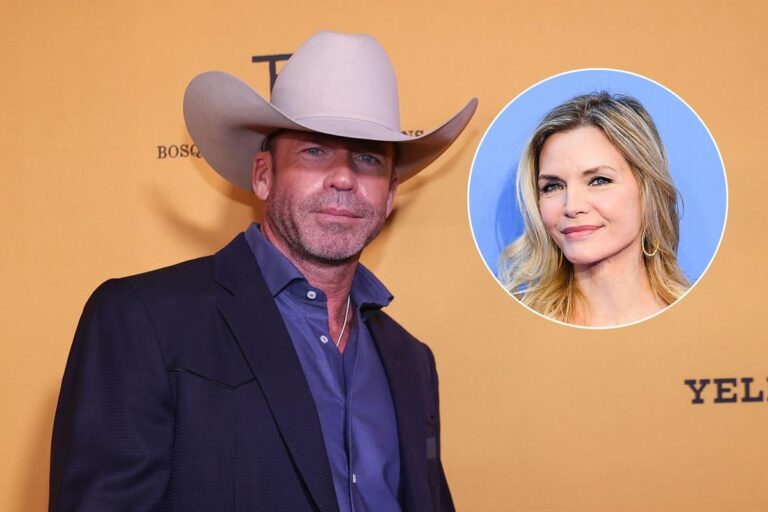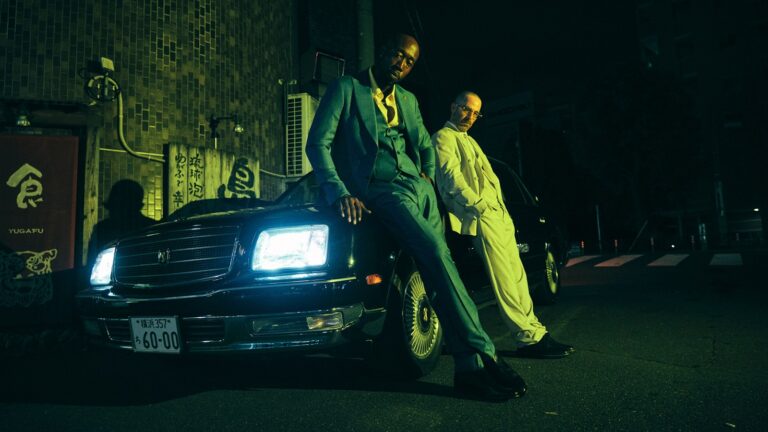In late July, Willie Nelson was onstage during his set on the Outlaw Music Festival tour in Raleigh, North Carolina, when tour manager John Selman noticed an abrupt shift in the weather. During his 20-plus years working with Nelson, Selman has dealt with the elements, but nothing like what he was seeing suddenly descend upon them. “This one was too big and too strong and there was heavy lightning,” Selman says. “It wasn’t good.” Waiting until Nelson had finished a song, Selman whisked him and his band offstage and into a bus — just as intense rain and lightning erupted all around them. “Afterwards, Willie thanked me,” Selman says. “He said, ‘Good call.’”
As Rolling Stone has reported, the impact of climate change on festivals and outdoor live music has been building over time. In the last few years, Beyoncé, Pink, and Noah Kahan, among others, have had concerts canceled or delayed by extreme lightning, rain, or wildfire smoke. The summer 2025 concert season wasn’t necessarily worse than other recent years, but more ferocious and erratic weather patterns continued to wreak havoc on the live music world.
During their summer tour, folk-rock band the Head and the Heart had to endure two extreme-weather situations. A show in Nashville was shut down due to approaching lightning, and another, an outdoor gig in Asbury Park, New Jersey, was canceled when the state issued a state of emergency over extreme storms. “It’s definitely been an anomaly for us,” says drummer Tyler Williams. “I don’t think we’ve ever canceled a show due to weather, and we’ve been touring heavily for 15 years. We’ve experienced a few humid, extreme summers, but this felt different.”
Not surprisingly given the season, festivals were especially slammed on weather-related fronts. Most conspicuously, this year’s Bonnaroo Music & Arts Festival was canceled after its first day due to what organizers called “significant and steady precipitation.” Bonnaroo organizers declined comment to Rolling Stone for this story, but Tim “Tuba” Smith of C3 Presents, which produces the festival, told The Tennessean this week, “The weather has been consistently worse than what the forecasts were. Safety is always the first concern here. It takes a lot to get 30,000 cars out of the property, and so we made that difficult decision … we did the best that we could.”
Bonnaroo 2025 was canceled after just one day due to extreme weather.
Douglas Mason/WireImage
Beyond the Raleigh show in July, this year’s Outlaw Music Festival faced other challenges. Co-headliner Bob Dylan’s set at the Gorge in Washington state had to end prematurely due to inordinately heavy winds. A show in Ridgedale, Missouri, was canceled roughly halfway through, thanks to another weather-pattern change. “It got extremely hot, the humidity was thick, and all of a sudden it got really cold and windy,” says Selman. “When that all collided, it caused chaos. We had a tent onstage to cover the gear, and it flew off like a parachute. We had to make that decision [to cancel] in 10 minutes.” Nelson’s famed guitar, Trigger, was on his bus and unharmed, but other gear and equipment were so soaked or damaged that the next stop on the tour, in Oklahoma, had to be nixed as well.
In Los Angeles, the annual Outloud festival, held in tandem with Pride Month in early June, was faced with inordinately high temperatures for that time of year. “In the two weeks leading up to the show, it looked like it was going to be hotter than usual,” Outloud founder Jeff Consoletti says. “We were seeing temperatures we hadn’t seen in L.A., in the high 80s.” After meeting with city officials, the festival added more water stations and shaded areas. Even then, adds Consoletti, “We didn’t see any life-threatening situations, but we saw an increase in the number of attendees who were dehydrated and had mild heat stroke.”
Inclement weather has long been the bane of festivals and outdoor tours, and differentiating between climate change and a stretch of bad storms can be tricky. But those in the live music world still feel the change is noticeable. “Extreme heat is the problem now,” says Stephen Parker of the National Independent Venue Association (NIVA). “We need to make sure venues have more cooling stations and in-and-out privileges for festivalgoers who can escape the heat in their car or in neighboring businesses. It’s a constant consideration now.”
An increase in lightning is also in the air. In July, a severe lightning storm headed toward the Great South Bay Music Festival on Long Island kept at least 1,500 customers away during its reggae night, featuring Stephen and Damian Marley. The storm wound up changing course, but according to founder Jim Faith, who has faced flooding at his festival in the past, “Anyone thinking of coming or on their way was changing their mind and not coming. The rain is bad enough. That’s what we used to worry about. But more lightning is the new thing. That’s a different animal.”
Other artists have cited similar factors in their decision-making this year. Steve Miller canceled his band’s summer shows thanks to what he called “the combination of extreme heat, unpredictable flooding, tornadoes, hurricanes and massive forest fires” that “makes these risks for you our audience, the band and the crew unacceptable.”
Speculation was rampant that supposedly low ticket sales were another reason for the nixed tour. Miller declined to comment, but in a social media post, Miller’s bassist, Kenny Lee Lewis, rebutted those rumors, doubling down on the weather explanation: “You didn’t see Steve Miller hanging over a railing after our first outdoor stadium show opening in the sun for Journey and Def Leopard in Atlanta trying to fend off heat exhaustion. … Next couple outdoor shows the crew had to arrange the stage air coolers with flexible ducts on him as he also wore frozen gel packs on his neck and shoulders. He looked like the Michelin Man! And he still almost passed out.” (A source in the concert business supports Miller’s claim about climate change.)
Echoing Miller’s methods of lowering onstage temperatures, Nelson, since 2021, has been carting around a portable air-conditioning unit (dubbed “Chilly Nelson” by his crew) to blow cool air onto the stage. The Head and the Heart’s touring gear includes a cold-plunge tub for the band to cool off backstage. “We use it just to feel better after shows,” Williams says. “But it’s become more of a necessity.”

Weather concerns have been building in the live music business for years. These concertgoers tried to stay dry at a 2024 Black Eyed Peas show in Pennsylvania.
Lisa Lake/Getty Images
As Guster has learned, the newly unpredictable climate can also impact musicians’ wallets. According to singer-guitarist Adam Gardner, insurance for events has gone up so much, thanks to the new risk factor of climate change, that bands like his are literally paying the price. “House expenses have gone up because the insurance went up, and they’re passing some of that along to the artists,” says Gardner, who also runs Reverb, a nonprofit aiming to create a “sustainable music industry.” “All of a sudden, our potential net income is thousands of dollars less, because of the risk of putting on a show outside.”
How climate change will impact festivals and outdoor tours remains as unpredictable as some of the storms that suddenly descend upon them. Some foresee indie festivals not surviving at all or, in the future, moving from summer to fall, or switching to inside venues. “Moving indoors into pre-existing infrastructures is probably the biggest change we’re seeing in festivals,” says NIVA’s Parker. “It not only cuts down on the risk of extreme weather, but you don’t have to set up a stage. That’s a more realistic logistical future for festivals, and it also minimizes the impact of climate change.”
Consoletti feels it would be “a bummer” to move his Outloud gathering into an indoor structure: “There’s something really special about people gathering and enjoying an artistic moment outdoors.” But as the live music business is learning, nothing is off the table anymore. “I think of us as an outdoor band,” says the Head and the Heart’s Williams. “Our music goes well with nature. Playing those sheds and storied amphitheaters is really fun. A lot of our fans don’t like to go to arenas, so we may have to train our fans to go there. People like to be outside.”



